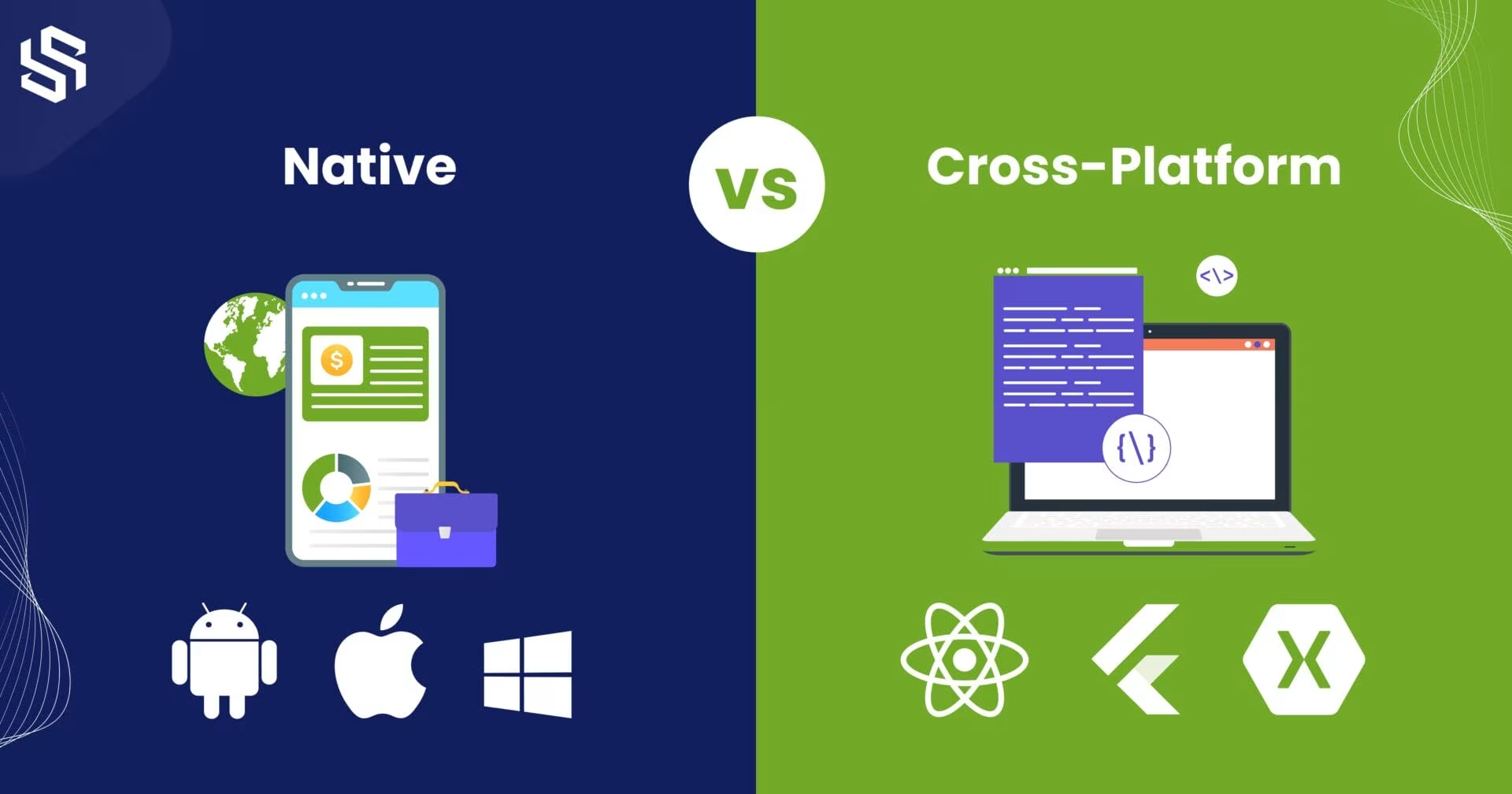Choosing between native and cross-platform development is one of the most critical decisions in mobile app development. Let's explore both approaches in detail.
Native Development: The Gold Standard
Native Development: The Gold Standard
Native development involves creating separate apps for iOS and Android using platform-specific languages and tools.
#Advantages:
- **Superior Performance**: Direct access to device hardware and APIs
- **Platform-Specific UI**: Follows platform design guidelines perfectly
- **Full Feature Access**: Complete access to all device capabilities
- **Better Security**: Platform-optimized security features
#Disadvantages:
- **Higher Costs**: Separate development teams and codebases
- **Longer Development Time**: Building twice for two platforms
- **Maintenance Overhead**: Updates needed for both platforms
Cross-Platform Development: Efficiency Meets Quality
Cross-platform frameworks like React Native and Flutter allow single codebase deployment across multiple platforms.
#React Native Benefits:
- **Code Reusability**: Up to 90% code sharing
- **Faster Development**: Single team, single codebase
- **Cost-Effective**: Reduced development and maintenance costs
- **Hot Reloading**: Faster development cycles
#Flutter Advantages:
- **Consistent UI**: Same look across all platforms
- **High Performance**: Compiled to native code
- **Rich Widgets**: Extensive UI component library
- **Growing Ecosystem**: Strong Google backing
Making the Right Choice
Consider native development when:
- Performance is critical
- Platform-specific features are essential
- Budget allows for separate teams
- Long-term maintenance is planned
Choose cross-platform when:
- Budget is constrained
- Time-to-market is crucial
- Simple to moderate complexity
- Consistent UI across platforms is desired
The decision ultimately depends on your specific project requirements, budget, and timeline.
- **Superior Performance**: Direct access to device hardware and APIs
- **Platform-Specific UI**: Follows platform design guidelines perfectly
- **Full Feature Access**: Complete access to all device capabilities
- **Better Security**: Platform-optimized security features
#
Disadvantages:
- **Higher Costs**: Separate development teams and codebases
- **Longer Development Time**: Building twice for two platforms
- **Maintenance Overhead**: Updates needed for both platforms
Cross-Platform Development: Efficiency Meets Quality
Cross-platform frameworks like React Native and Flutter allow single codebase deployment across multiple platforms.
#React Native Benefits:
- **Code Reusability**: Up to 90% code sharing
- **Faster Development**: Single team, single codebase
- **Cost-Effective**: Reduced development and maintenance costs
- **Hot Reloading**: Faster development cycles
#Flutter Advantages:
- **Consistent UI**: Same look across all platforms
- **High Performance**: Compiled to native code
- **Rich Widgets**: Extensive UI component library
- **Growing Ecosystem**: Strong Google backing
Making the Right Choice
Consider native development when:
- Performance is critical
- Platform-specific features are essential
- Budget allows for separate teams
- Long-term maintenance is planned
Choose cross-platform when:
- Budget is constrained
- Time-to-market is crucial
- Simple to moderate complexity
- Consistent UI across platforms is desired
The decision ultimately depends on your specific project requirements, budget, and timeline.
Cross-platform frameworks like React Native and Flutter allow single codebase deployment across multiple platforms.
#
React Native Benefits:
- **Code Reusability**: Up to 90% code sharing
- **Faster Development**: Single team, single codebase
- **Cost-Effective**: Reduced development and maintenance costs
- **Hot Reloading**: Faster development cycles
#Flutter Advantages:
- **Consistent UI**: Same look across all platforms
- **High Performance**: Compiled to native code
- **Rich Widgets**: Extensive UI component library
- **Growing Ecosystem**: Strong Google backing
Making the Right Choice
Consider native development when:
- Performance is critical
- Platform-specific features are essential
- Budget allows for separate teams
- Long-term maintenance is planned
Choose cross-platform when:
- Budget is constrained
- Time-to-market is crucial
- Simple to moderate complexity
- Consistent UI across platforms is desired
The decision ultimately depends on your specific project requirements, budget, and timeline.
- **Consistent UI**: Same look across all platforms
- **High Performance**: Compiled to native code
- **Rich Widgets**: Extensive UI component library
- **Growing Ecosystem**: Strong Google backing

